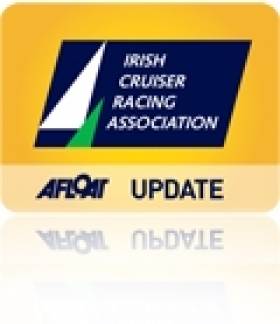Displaying items by tag: sail repair
Taking Care of Sails this Winter
Mildew
Caused by storing sails wet and dirty, or salty. Remove by soaking for 2 hours in a cold solution of 1 part of bleach (Domestos etc) added to 10 parts of water. Rinse afterwards and repeat as required.
Bloodstains
Caused by overworking crews! Soak in a solution of half cup of ammonia to half gallon of water. Rinse thoroughly
Oil and Grease stains
Small areas can be cleaned with a dry cleaning fluid such as TRI or PERCHLORETHYLENE. For larger areas use a cleaner such as Polyclens. Brush it well into the fabric, leave it for 15 minutes and wash off in lukewarm water. Please note that some grease stains will contain metal or rust particles which are hard to remove. Try 1 oz. oxalic acid in a pint of hot water as a rust remover but do wash the sail and your hands thoroughly afterwards.
Paint and Varnish
Don't use paint stripper – it removes sail and all! Try alcohol (but not the best Jameson's) or Meths. If that isn't potent enough use TRI or PERCHLORETHYLENE, followed by a 50/50 mixture of acetone and amyl acetate. Wash with warm water and detergent to avoid the very un-nautical smells!
Having got the worst stains off your sails, you now come to the washing – and maybe at this stage the thought of ringing us to collect and wash is quite attractive!
Small sails can be washed in the bath and large ones on a clean wash down area, using a scrubbing brush and a hose. Don't use water hotter that comfortable hand temperature. Any brand of liquid detergent can be used.
Very dirty areas can be treated with neat detergent and left overnight before scrubbing off.
Don't leave the sail to soak or dry on corrosive or hot pipes – you might end up with dirtier sails or have odd shapes heat-shrunk into them.
Speaking of odd shapes, this is the perfect time to get your sails re-cut to bring back their original shape, speed and performance.
When you get your sails back from us, store them in a dry place and when the 2011 season comes they will be in the best possible condition to serve you once again.
Sailmakers have various arrangements for the pick, up and delivery of sails. If after reading this advice and you're in need of some professional help, why not consult our advertisers in this feature?
Overnight Sail Repair Service for ICRAs
ICRA members sailing in Dun Laoghaire will be interested to know that North Sails Ireland have announced they are to run an overnight sail repair service during the Liebherr Cruiser Nationals. The service will be run out of the Stena Line ferry terminal in Dun Laoghaire.
Contact details for the North Sails Ireland are available on their website: www.northsails.ie































































